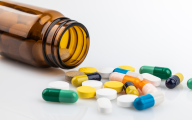 产业资讯
产业资讯
 中国药促会
中国药促会  2020-03-27
2020-03-27
 6655
6655
FDA Guidance on Conduct of Clinical Trials of Medical Products during COVID-19 Pandemic
FDA关于在COVID-19大流行期间
进行医疗产品临床试验的指南
中国医药创新促进会国际部翻译整理
美国卫生与公共服务部
美国药品监督管理局(FDA)
药品审评与研究中心(CDER)
生物制品审评与研究中心(CBER)
医疗器械和辐射健康中心(CDRH)
临床试验质量管理规范办公室(OGCP)
I. Introduction
I. 前言
The Food and Drug Administration (FDA or Agency) plays a critical role in protecting the United States from threats including emerging infectious diseases, including the Coronavirus Disease 2019 (COVID-19) pandemic. FDA is committed to providing timely guidance to support continuity and response efforts to this pandemic.
FDA在保护美国免受包括新发传染病在内的各种威胁(包括COVID-19大流行)起着至关重要的作用。FDA致力于提供及时的指南,以支持对这种大流行的持续应对措施。
FDA is issuing this guidance to provide general considerations to assist sponsors in assuring the safety of trial participants, maintaining compliance with good clinical practice (GCP), and minimizing risks to trial integrity during the COVID-19 pandemic.
FDA发布这一指南旨在帮助申办者(sponsors)确保试验受试者的安全、保证药品临床试验遵守质量管理规范(GCP)并最大限度地降低在COVID-19大流行期间对试验完整性造成的风险。
Given this public health emergency, this guidance is being implemented without prior public comment because the FDA has determined that prior public participation for this guidance is not feasible or appropriate (see section 701(h)(1)(C)(i) of the Federal Food, Drug, and Cosmetic Act (FD&C Act) and 21 CFR 10.115(g)(2)). This guidance document is being implemented immediately, but it remains subject to comment in accordance with the Agency’s good guidance practices.
鉴于所面临的突发公众卫生事件,依照联邦食品药品与化妆品(FD&C)法案、联邦法规21章相关内容,本指南的施行并未事先征求公众意见,但根据FDA药事指导质量管理规范,本指南仍面向公众征询意见。
In general, FDA’s guidance documents, including this guidance, do not establish legally enforceable responsibilities. Instead, guidances describe the Agency’s current thinking on a topic and should be viewed only as recommendations, unless specific regulatory or statutory requirements are cited. The use of the word should in Agency guidance means that something is suggested or recommended, but not required.
通常,FDA的指导文件(包括本指南)没有确立法律上可执行的责任。相反,指南描述了FDA当前对某个主题的想法,除非被引用了特定的监管或法规要求,否则它们仅应被视为建议。在FDA指南中使用“应该”一词的意思是建议或推荐某事,但并非强制。
II. Background
II. 背景
There is currently an outbreak of respiratory disease caused by a novel coronavirus that was first detected in Wuhan City, Hubei Province, China, and that has now been detected in many locations internationally, including cases in the United States. The virus has been named “SARS CoV-2” and the disease it causes has been named “Coronavirus Disease 2019” (COVID-19). On January 31, 2020, the Department of Health and Human Services (HHS) issued a declaration of a public health emergency related to COVID-19 and mobilized the Operating Divisions of HHS.1 In addition, on March 13, 2020, the President declared a national emergency in response to COVID-19.
目前,在中国湖北省武汉市首先发现的一种由新型冠状病毒引起的呼吸道疾病爆发,已经在包括美国在内的全球许多地方发现病例。该种病毒被命名为“SARS CoV-2”,其引起的疾病被命名为冠状病毒病2019(COVID-19)。2020年1月31日,美国卫生与公共服务部(HHS)发布了一份与COVID-19相关的突发公共卫生事件声明。此外,美国总统特朗普为应对COVID-19,于2020年3月13日宣布美国进入国家紧急状态。
FDA recognizes that the COVID-19 pandemic may impact the conduct of clinical trials of medical products. Challenges may arise, for example, from quarantines, site closures, travel limitations, interruptions to the supply chain for the investigational product, or other considerations if site personnel or trial subjects become infected with COVID-19. These challenges may lead to difficulties in meeting protocol-specified procedures, including administering or using the investigational product (For the purposes of this guidance, the term investigational product refers to human drugs and biological products, and medical devices.) or adhering to protocol-mandated visits and laboratory/diagnostic testing. FDA recognizes that protocol modifications may be required, and that there may be unavoidable protocol deviations due to COVID-19 illness and/or COVID-19 control measures. Although the necessity for, and impact of, COVID-19 control measures on trials will vary depending on many factors, including the nature of disease under study, the trial design, and in what region(s) the study is being conducted, FDA outlines the following general considerations to assist sponsors in assuring the safety of trial participants, maintaining compliance with good clinical practice (GCP), and minimizing risks to trial integrity.
FDA认识到COVID-19大流行可能会影响医疗产品的临床试验。如果试验机构人员或受试者感染COVID-19,将会面临可能来自隔离、试验机构关闭、旅行限制、试验用药品(investigational product,本指南中指的是人用药品和生物制品以及医疗器械)的供应链中断或者其他考虑因素的挑战。这些挑战可能导致难以满足方案所规定的程序,包括管理或使用试验用药品或继续进行试验方案所规定的访视和实验室/诊断检测。FDA还认识到可能需要修改试验方案,并且由于COVID-19疾病和/或COVID-19控制措施可能会不可避免地导致试验方案偏离。虽然COVID-19控制措施对试验的必要性和影响取决于许多因素,包括疾病的性质、试验设计以及在哪个区域进行,但FDA概述了以下一般注意事项,以帮助申办者(sponsors)确保试验受试者的安全、保证药品临床试验遵守质量管理规范(GCP)并最大限度地降低对试验完整性造成的风险。
III. Discussion
III. 讨论
A. Considerations for ongoing trials:
A. 正在进行的临床试验的注意事项
• Ensuring the safety of trial participants is paramount. Sponsors should consider each circumstance, focusing on the potential impact on the safety of trial participants, and modify study conduct accordingly. Study decisions may include those regarding continuing trial recruitment, continuing use of the investigational product for patients already participating in the trial, and the need to change patient monitoring during the trial. In all cases, it is critical that trial participants are kept informed of changes to the study and monitoring plans that could impact them.
l 确保试验受试者的安全至关重要。申办者应考虑各种情况,重点关注对试验受试者安全的潜在影响并相应地修改正在进行的研究。研究决策可能包括以下方面:是否继续招募试验人员、是否为已经参与该试验的患者继续使用试验用药品以及在试验期间更改患者监测计划的必要性。任何情况下,让试验受试者了解可能影响该研究和监测计划的变化至关重要。
• Sponsors, in consultation with clinical investigators and Institutional Review Boards (IRBs)/Independent Ethics Committees (IECs), may determine that the protection of a participant’s safety, welfare, and rights is best served by continuing a study participant in the trial as per the protocol or by discontinuing the administration or use of the investigational product or even participation in the trial. Such decisions will depend on specific circumstances, including the nature of the investigational product, the ability to conduct appropriate safety monitoring, the potential impact on the investigational product supply chain, and the nature of the disease under study in the trial.
l 申办者在与临床研究者和机构审查委员会(IRB)/独立伦理委员会(IEC)协商后,可通过按照试验方案继续让研究受试者参与试验或通过中止用药或使用试验用药品,甚至中止参与试验,来确保对受试者的安全、福利和权利的最佳保护。此类决定将取决于具体情况,包括试验用药品的性质,进行适当安全监控的能力,对试验用药品供应链的潜在影响以及试验中所研究疾病的性质。
• Since trial participants may not be able to come to the investigational site for protocol- specified visits, sponsors should evaluate whether alternative methods for safety assessments (e.g., phone contact, virtual visit, alternative location for assessment, including local labs or imaging centers) could be implemented when necessary and feasible, and would be sufficient to assure the safety of trial participants. Sponsors should determine if in-person visits are necessary to fully assure the safety of trial participants (for example to carry out procedures necessary to assess safety or the safe use of the investigational product appropriately); in making the decision to continue use or administration of the investigational product, the sponsor should consider whether the safety of trial participants can be assured with the implementation of the altered monitoring approach.
l 当试验受试者可能无法前往试验机构进行试验方案所规定的访视时,申办者应评估在必要和可行时是否可以实施替代性安全评估方法(例如,电话联系、虚拟访视(virtual visit)、替代性的评估机构,包括,当地实验室或影像学中心),并且这些替代方法应足以确保试验受试者的安全。申办者应确定是否有必要亲自访视,以充分确保试验受试者的安全(例如,执行必要的程序以评估安全性或试验用药品的安全使用);在决定继续使用试验用药品时,申办者应考虑是否可以通过实施修改的监测方法来确保试验受试者的安全。
• In some cases, trial participants who no longer have access to investigational product or the investigational site may need additional safety monitoring (e.g. withdrawal of an active investigational treatment).
l 在某些情况下,不再能够获得试验用药品或试验机构的试验受试者(例如,研究性疗法的暂停)可能需要额外的安全检测。
• The need to put new processes in place or to modify existing processes will vary by the protocol and local situation. For example, this assessment could include consideration of whether it is appropriate to delay some assessments for ongoing trials, or, if the study cannot be properly conducted under the existing protocol, whether to stop ongoing recruitment, or even withdraw trial participants.
l 根据试验方案和当地情况的不同,需要采用新方案或修改现有方案。例如,该评估可以包括考虑是否推迟正在进行的试验的某些评估,或者,如果研究不能在现有方案下适当地进行,是否停止患者招募,甚至是试验受试者退出试验。
• COVID-19 screening procedures that may be mandated by the health care system in which a clinical trial is being conducted do not need to be reported as an amendment to the protocol even if done during clinical study visits unless the sponsor is incorporating the data collected as part of a new research objective.
l 正在进行临床试验的医疗保健体系可能强制执行COVID-19筛查程序,即使在临床研究访视期间进行,无需作为方案修改进行报告,除非申办者将收集的数据作为新的研究目标的一部分。
• Changes in a protocol are typically not implemented before review and approval by the IRB/IEC, and in some cases, by FDA. Sponsors and clinical investigators are encouraged to engage with IRBs/IEC as early as possible when urgent or emergent changes to the protocol or informed consent are anticipated as a result of COVID-19. Such changes to the protocol or investigational plan to minimize or eliminate immediate hazards or to protect the life and well-being of research participants (e.g., to limit exposure to COVID-19) may be implemented without IRB approval or before filing an amendment to the IND or IDE, but are required to be reported afterwards (see 21 CFR 56.108(a)(4), 21 CFR 56.104(c), 21 CFR 312.30(b)(2)(ii), and 21 CFR 812.35(a)(2).) FDA encourages sponsors and investigators to work with their IRBs to prospectively define procedures to prioritize reporting of deviations that may impact the safety of trial participants.
l 在IRB/IEC或FDA(在某些情况下)审评和批准前,通常不会实施方案中的变更。在预计由于COVID-19而导致方案或知情同意书的紧急或突发变更时,FDA鼓励申办者和临床研究者尽早与IRB/IEC沟通。对于旨在最大程度地减少或消除立即性危害或保护研究受试者的生命和健康(例如,限制暴露于COVID-19)而对方案或研究计划进行的变更,可以在没有IRB批准的情况下实施或在IND或IDE申报变更之前实施,但必须在事后加以报告(参考21CFR 56.108(a)(4)、21CFR 56.104(c)、21CFR 312.30(b)(2)(ii) and 21CFR 812.35(a)(2))。FDA鼓励申办者和研究者与他们的IRB合作,前瞻性地定义程序,优先报告可能影响试验受试者安全性的偏离。
• The implementation of alternative processes should be consistent with the protocol to the extent possible, and sponsors and clinical investigators should document the reason for any contingency measures implemented. Sponsors and clinical investigators should document how restrictions related to COVID-19 led to the changes in study conduct and duration of those changes and indicate which trial participants were impacted and how those trial participants were impacted.
l 替代性的过程的实施应尽可能与试验方案保持一致,申办者和临床研究者应记录采取所有应急措施的原因。申办者和临床研究者应记录与COVID-19相关的限制如何导致研究执行的改变和这些改变的持续时间,并指出哪些试验受试者受到影响以及这些试验受试者如何受到影响。
• Changes in study visit schedules, missed visits, or patient discontinuations may lead to missing information (e.g., for protocol-specified procedures). It will be important to capture specific information in the case report form that explains the basis of the missing data, including the relationship to COVID-19 for missing protocol-specified information (e.g., from missed study visits or study discontinuations due to COVID-19). This information, summarized in the clinical study report, will be helpful to the sponsor and FDA.
l 研究访视时间表的更改,错过访视或患者停药可能会导致信息丢失(例如,针对方案规定的程序)。重要的是要在病例报告表中捕获特定信息,以解释缺失数据的主要原因,包括缺少试验方案规定的信息与COVID-19的关系(例如,由于COVID-19而导致的错过研究就诊或研究中止)。临床研究报告中总结的这些信息将对申办者和FDA有所帮助。
• If scheduled visits at clinical sites will be significantly impacted, certain investigational products, such as those that are typically distributed for self-administration, may be amenable to alternative secure delivery methods. For other investigational products that are normally administered in a health care setting, consulting FDA review divisions on plans for alternative administration (e.g., home nursing or alternative sites by trained but non-study personnel) is recommended. In all cases, existing regulatory requirements for maintaining investigational product accountability remain and should be addressed and documented.
l 如果试验机构进行的定期访视受到重大影响,则某些试验用药品(例如,通常可以自行用药的产品)可能会调整替代性的安全运送方法。对于通常在医疗卫生条件下使用的其他试验用药品,应咨询FDA审评部门关于替代性用药计划的建议(例如,受过培训的非研究者提供家庭护理或替代机构)。在所有情况下,现行法规所规定的研究物品需要清点的要求依旧生效,应予以处理并记录在案。
• With respect to efficacy assessments, FDA recommends consultation with the appropriate review division regarding protocol modifications for the collection of efficacy endpoints, such as use of virtual assessments, delays in assessments, and alternative collection of research-specific specimens, if feasible. For individual instances where efficacy endpoints are not collected, the reasons for failing to obtain the efficacy assessment should be documented (e.g., identifying the specific limitation imposed by COVID-19 leading to the inability to perform the protocol-specified assessment).
l 就有效性评价而言,FDA建议就适当的有效性终点收集的方案修改与相应的审评部门进行磋商,例如在可行的情况下,使用虚拟评估、延迟评估以及对具体研究样本的替代性收集。对于未收集有效性终点的个别情况,应记录未能获得有效性评估的原因(例如,确定由COVID-19造成的特定限制,导致无法执行方案规定的评估)。
• If changes in the protocol will lead to amending data management and/or statistical analysis plans, the sponsor should consider doing so in consultation with the applicable FDA review division. Prior to locking the database, sponsors should address in the statistical analysis plan how protocol deviations related to COVID-19 will be handled for the prespecified analyses.
l 如果方案中的变更将导致数据管理和/或统计分析计划的修改,则申办者应考虑与相应的FDA审评部门磋商后进行修改。在锁定数据库之前,申办者应使用其统计分析计划来解决如何针对预定分析处理与COVID-19相关的试验方案偏离。
• If planned on-site monitoring visits are no longer possible, sponsors should consider optimizing use of central and remote monitoring programs to maintain oversight of clinical sites.
l 如果不能进行有计划的实地监测访视,申办者应考虑优化使用中央和远程监测程序,以保持对临床试验机构的监督。
B. In general, and if policies and procedures are not already in place for applicable trials:
B、 一般而言,如果尚未针对适用的试验制定政策和程序:
• Sponsors, clinical investigators, and IRBs should consider establishing and implementing policy and procedures, or revise existing policy and procedures, to describe approaches to be used to protect trial participants and manage study conduct during possible disruption of the study as a result of COVID-19 control measures at study sites. Changes to policy and procedures could address, but not be limited to, impact on the informed consent process, study visits and procedures, data collection, study monitoring, adverse event reporting, and changes in investigator(s), site staff, and/or monitor(s) secondary to travel restrictions, quarantine measures, or COVID-19 illness itself. Policy and procedures should be compliant with applicable (regional or national) policy for the management and control of COVID-19. Depending upon the nature of the changes described above, a protocol amendment may be required under the applicable regulations (see 21 CFR 312.30(b) and 21 CFR 812.35(a)).
l 申办者、临床研究者和IRB应考虑制定和实施政策和程序,或者修改现有的政策和程序,以描述在试验机构的COVID-19控制措施可能导致研究中断期间用于保护试验受试者和管理研究实施的方法。政策和程序的改变可以解决但不限于对知情同意程序、研究访视和程序、数据收集、研究监测、不良事件报告以及研究者、现场工作人员和/或监测人员因旅行限制、隔离措施或COVID-19疾病本身而产生的变化的影响。政策和程序应符合适用于COVID-19的管理和控制(地区或国家)政策。根据上述改变的性质,可能会根据适用的法规对方案进行修改(参考21 CFR 312.30(b) and 21 CFR 812.35(a))。
C. For all trials that are impacted by the COVID-19 pandemic:
C、 对于所有受COVID-19大流行影响的试验:
Sponsors should describe in appropriate sections of the clinical study report (or in a separate study- specific document):
申办者应在临床研究报告的适当部分(或在单独的特定研究的文件中)进行描述:
1. Contingency measures implemented to manage study conduct during disruption of the study as a result of COVID-19 control measures.
1. 在由于COVID-19控制措施而导致研究中断期间,为管理试验研究而实施的应急措施。
2. A listing of all participants affected by the COVID-19 related study disruption by unique subject number identifier and by investigational site, and a description of how the individual’s participation was altered.
2. 按研究中心列出受COVID-19影响研究中断的所有受试者(受试者通过唯一受试者鉴认代码进行标记),并描述个体参与方式的变化。
3. Analyses and corresponding discussions that address the impact of implemented contingency measures (e.g., trial participant discontinuation from investigational product and/or study, alternative procedures used to collect critical safety and/or efficacy data) on the safety and efficacy results reported for the study.
3. 针对已实施的应急措施(例如,试验受试者停止使用试验用药品和/或参与研究、使用收集关键安全性和/或有效性数据的替代性程序)对研究报告的安全性和有效性结果的影响进行分析和相应的讨论。
Robust efforts by sponsors, investigators, and IRBs/IECs to maintain the safety of trial participants and study data integrity are expected, and such efforts should be documented. As stated above, FDA recognizes that protocol modifications may be required, including unavoidable protocol deviations due to COVID-19 illness and/or COVID-19 control measures. Efforts to minimize impacts on trial integrity, and to document the reasons for protocol deviations, will be important.
申办者、研究者和IRB/IEC应为维护试验受试者的安全性和研究数据的完整性而做出强有力的努力,并应记录这些工作内容。如上所述,FDA认识到可能需要修改方案,包括由于COVID-19疾病和/或COVID-19控制措施而导致不可避免的试验方案偏离。重要的是,通过努力最大限度地降低对试验完整性的影响,并记录出试验方案偏离的原因。
IV. Additional Resources
IV. 相关链接
For further questions on clinical trial conduct during the COVID 19 pandemic, please email:
疫情期间有关临床试验方面的更对需求请联系:
Clinicaltrialconduct-COVID19@fda.hhs.gov.
Contact information for FDA’s review divisions is as follows:
FDA相关部门网站链接:
CDER:
https://www.fda.gov/about-fda/center-drug-evaluation-and-research-cder/office-new-drugs
CBER:
CDRH:
https://www.fda.gov/about-fda/cdrh-offices/cdrh-management-directory-organization
张丹
方恩(天津)医药发展有限公司董事长兼CEO
中国医药创新促进会药物研发专业委员会、创新研发服务专业委员会副主任委员

 产业资讯
产业资讯
 医药财经
医药财经  2025-10-14
2025-10-14
 638
638

 产业资讯
产业资讯
 医药魔方Invest
医药魔方Invest  2025-10-14
2025-10-14
 647
647

 产业资讯
产业资讯
 同写意
同写意  2025-10-14
2025-10-14
 616
616